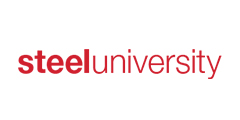Description
Estimated time: 6 hours
Starting: 19 April 2021
Language: English
Course delivery: Live Sessions
Summary of the course
When making strategic decisions, people are often the victims of predictable errors. These errors happen not because people are not smart enough or fail to make the time and effort to try to get things right (though those things are sometimes true). Rather, many of these errors can be the result of how our mind processes information and makes judgements. Join this course to learn more about the sources and types of errors and the steps you can take to overcome them.
Learning objectives
- Recognise bias in decision making
- Understand how people think when making decisions
- Test your awareness through a practical exercise
Instructor introduction

Dr Matthew Mulford
Adjunct Professor – HEC Paris
Visiting Senior Fellow – London School of Economics
Capstone Director – TRIUM EMBA
Matthew Mulford is an adjunct Professor at HEC Paris where he teaches in various HEC Executive Education Programs, both degree and non-degree. He also designs and facilitates HEC customized programs for corporate clients as an Academic Director. In addition to his position at HEC, Matthew is currently a Senior Research Fellow at the London School of Economics and a Visiting Lecturer at the European School of Management and Technology. Matthew joined the London School of Economics (LSE) faculty in 1995 where he was a senior lecturer in quantitative methods and negotiation analysis. He was a founding Dean of the TRIUM Global Executive MBA program – a joint EMBA from HEC, the LSE, and New York University’s Stern Business School. Matthew’s research interests include the psychology of judgment and decision, effective leadership, experimental game theory, negotiation analysis, and experimental research design. Mattehw has designed and/or taught customized executive programs for various institutions, across a variety of industries, in more than 25 countries.
Takeaways
- steeluniversity Certificate of Completion
- Add your certificate to your LinkedIn profile
- Decision checklist
- Presentations provided as a PDF
Registration fee
€399 per person (plus any taxes which may be applicable). Payment made can be made by credit card.
For companies, registration promo codes may be requested for multiple registrations and payment may be made by invoice and international bank transfer to World Steel Association. Please write to us at support@steeluniversity.org
Registration limit
The course is will be limited to a maximum of 40 participants. This is done to ensure a more interactive, and higher quality, experience.
Refund policy
Requests for a 100% refund will be accepted until 05 April 2021 at 12.00 UTC. After this, no refunds are possible, but another person may be substituted for the registered person.
Course Delivery
The course will be delivered 100% online with live lectures. The Zoom Meetings platform will be used.
Participants are responsible for ensuring they are able to access the platform. System requirements can be found here. Note some companies may restrict access through corporate IT systems, so it is strongly recommended to verify accessibility ahead of the course.
A recording of the course WILL NOT be available. It is necessary to attend the live lectures to receive the certificate of completion.
After registration, and prior to the course, participants will be sent pre-work materials and a password protected link to join the course.
Schedule
| Module #1 | Pre-work |
| Complete Prior to Module #2 | 1) Read assigned article provided
2) Complete questionnaire
|
| Module #2 | Introduction to Decision Making Biases |
| 19 April 2021
14.00 – 15.30 UTC |
In this session we will go through three common decision errors/judgement biases which routinely affect our decisions: 1) The seductive nature of simple stories; 2) The downside of group decision making; 3) Risk and uncertainty illusions. |
| Module #3 | Designing Solutions |
| 20 April 2021
14.00 – 15.30 UTC |
In the same way that knowing something is an optical illusion does not make the illusion disappear, there is little evidence that we can teach ourselves to avoid judgement biases simply by being aware of their potential. Instead, leaders need to design decision processes in ways which make many of the judgement illusions disappear. We will go practical steps you can take to improve your decisions. |
| Module #4 | Peer to Peer Consulting |
| Complete Prior to Module #5 | Participants will be assigned to a group of 2 and invited to apply learning by sharing an idea of one thing to address biases in their own decision making. Participants will connect online using their agreed connection method to share their experience. |
| Module #5 | Roundtable Review and Defief |
| 26 April 2021
14.00 – 15.30 UTC |
In addition to the interactive live lectures, this last module invites participants to share their experience with the whole group from the peer to peer consulting module. |
Course Syllabus
Official Certificate from steeluniversity
Receive a digital certificate signed by steeluniversity and worldsteel directors with the institution’s logo to verify your achievement.
Increase job prospects
worldsteel represents over 160 steel producers, national and regional steel industry associations, and steel research institutes. With a certificate from steeluniversity / worldsteel you can improve your CV to work for the steel industry.




